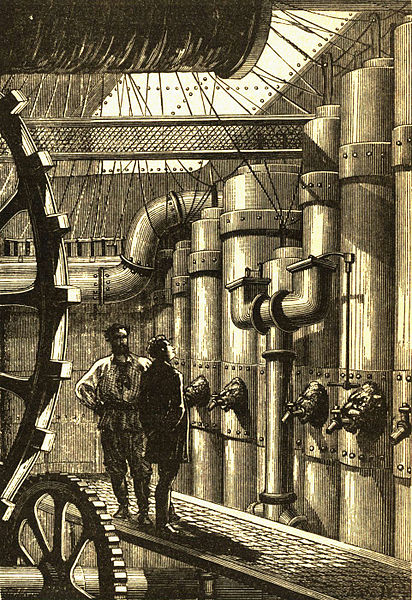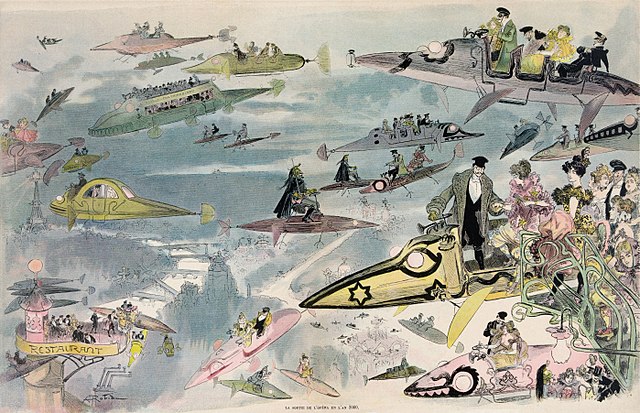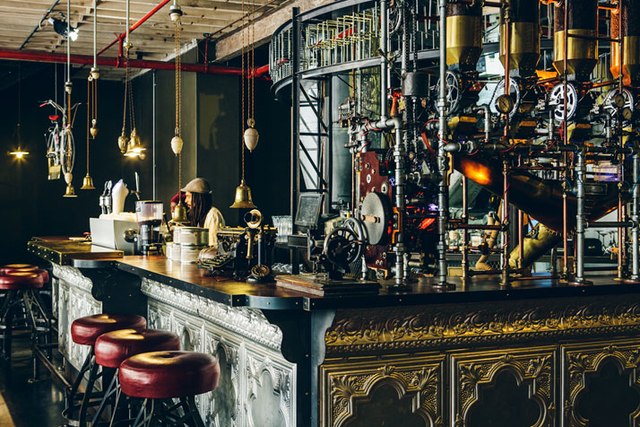Wild Wild West is a 1999 American steampunk Western film directed by Barry Sonnenfeld and written by S. S. Wilson and Brent Maddock alongside Jeffrey Price and Peter S. Seaman, based on a story conceived by Jim and John Thomas. Loosely adapted from The Wild Wild West, a 1960s television series created by Michael Garrison, it is the only production since the television film More Wild Wild West (1980) to feature the characters from the original series.
Theatrical release poster
Robert Conrad, who played Jim West in the original television series, arrived at the 20th Golden Raspberry Awards ceremony to collect in person three Razzies the film won to express his objections to the film.
Steampunk is a subgenre of science fiction that incorporates retrofuturistic technology and aesthetics inspired by, but not limited to, 19th-century industrial steam-powered machinery. Steampunk works are often set in an alternative history of the Victorian era or the American "Wild West", where steam power remains in mainstream use, or in a fantasy world that similarly employs steam power.
Original illustration of Jules Verne's Nautilus engine room
"Maison tournante aérienne" (aerial rotating house) by Albert Robida for his book Le Vingtième Siècle, a 19th-century conception of life in the 20th century
Print (c. 1902) by Albert Robida showing a futuristic view of air travel over Paris in the year 2000 as people leave the opera
Truth Coffee, a steampunk café in Cape Town






